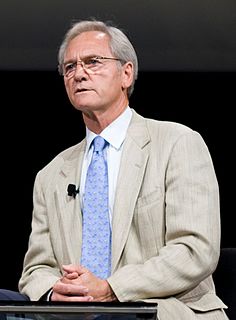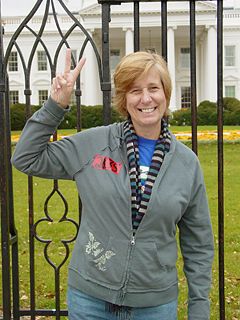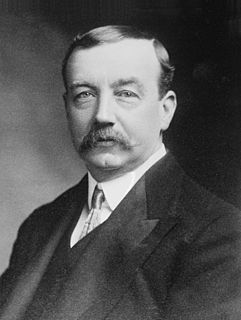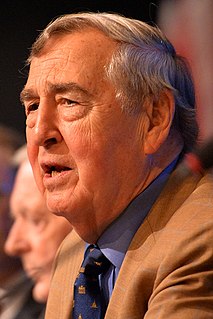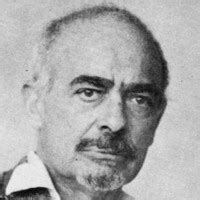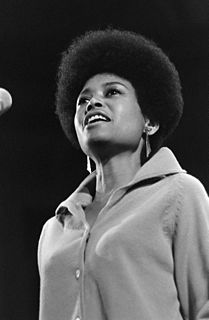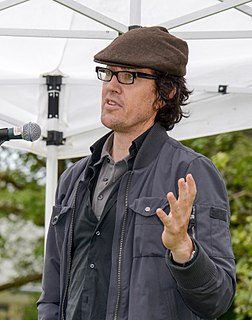A Quote by Nat Hentoff
Carl Armstrong was one of those people in the anti-war years who had been so convinced of the righteousness of their cause that he and some friends decided they would blow up a building at the University of Wisconsin, in which they said research was being done to help the war against the Vietnamese. What they blew up at three or four in the morning was a young scientist, who was married and had a couple of kids, who wasn't working on war stuff at all. And he was killed.
Quote Topics
Against
Anti
Anti-War
Armstrong
Been
Being
Being Done
Blew
Blow
Building
Cause
Convinced
Couple
Decided
Done
Four
Friends
Had
Help
Kids
Married
Morning
People
Research
Righteousness
Said
Scientist
Some
Stuff
They Said
Those
Three
University
Up
Vietnamese
War
Which
Wisconsin
Working
Would
Years
Young
Related Quotes
I had been secretary of state for eight years, attorney general for four years, lieutenant governor for four years, and governor for four years - I had all these friends around the country - so I thought I could gin up a campaign not for me but against George W. Bush, against his war, against his economic policies, and against his education policies.
It is not just the vulgar, premature bawdiness of pro-war triumphalists which I find revolting. It is that they accuse anti-war people of being uncaring about the people of Iraq, and the lack of concern that these proponents of war show for the bodies of the killed and those maimed and injured by their invasion.
Our prime minister could embrace and forgive the people who killed our beloved sons and fathers, and so he should, but he could not, would not, apologise to the Aboriginal people for 200 years of murder and abuse. The battle against the Turks, he said in Gallipoli, was our history, our tradition. The war against the Aboriginals, he had already said at home, had happened long ago. The battle had made us; the war that won the continent was best forgotten
[D]rawing up 'secret war plans' for a possible attack on Iraq wasn't irrational. The low-level war against Saddam was 12 years old, with no end in sight. American and British pilots were getting shot at, sanctions weren't working, and Bush was getting warnings that Saddam had all those terrible weapons and would use them against America. Bush would have been a fool not to draw up plans. Gee, wait till the critics find out that FDR, without ever informing the media, was plotting to fight Japan and Germany before Pearl Harbor.
War is a barbaric tool of the war profiteers and Empires who employ them. War pits young people from the working class against other similarly poor, or disadvantaged humans, for nothing but the greed of the few. Only we the people can make war obsolete by not participating in the profound crimes of the profiteers and other war mongers.
One very difficult decision was deciding to vote against the appropriations bill for the war. I had consistently said that I wanted to make sure our troops got the adequate and training in the war effort, despite the fact that I opposed the war at the point that the president decided to double down and send more troops. I had to vote against funding as a way of bringing it back to the table. That was a difficult decision for me.
Japan suffered terribly from the atomic bomb but never adopted a pose of moral superiority, implying: 'We would never have done it!' The Japanese know perfectly well they would have used it had they had it. They accept the idea that war is war; they give no quarter and accept none. Total war, they recognize, knows no Queensberry Rules. If you develop a devastating new weapon during a total war, you use it; you do not put it into the War Museum.
When I was on an American show in 2015, I tried to talk about the threat Vladimir Putin posed to the free world. The interviewer said, "Wake me up when he takes over Poland." We heard something similar from years ago and we ended up with World War Two. Putin decided to skip Poland and went straight to Wisconsin. Putin is at war, a hybrid war, with the free world. His domestic propaganda is based entirely on a strong man challenging the free world. When the demonstrations around Russia began, the harsh response was because it was more important to show strength.
Once the war began, the government could do anything 'necessary' to win it; so it was with the 'final solution of the Jewish problem,' which the Nazis always talked about but never dared undertake, not even the Nazis, until war and its 'necessities' gave them the knowledge that they could get away with it. The people abroad who thought that war against Hitler would help the Jews were wrong. And the people in Germany who, once the war had begun, still thought of complaining, protesting, resisting, were betting on Germany's losing the war. It was a long bet. Not many made it.
A few years ago, I was trying to buy a piece of land next to a house I had in Newfoundland. I discovered that the plot had been owned by a family, and the son had gone off to World War I and been killed. It began to interest me: What would have happened on that land if the son had lived, had brought up his own family there?
If you look back to the anti-intervention movements, what were they? Let's take the Vietnam War - the biggest crime since the Second World War. You couldn't be opposed to the war for years. The mainstream liberal intellectuals were enthusiastically in support of the war. In Boston, a liberal city where I was, we literally couldn't have a public demonstration without it being violently broken up, with the liberal press applauding, until late 1966.

